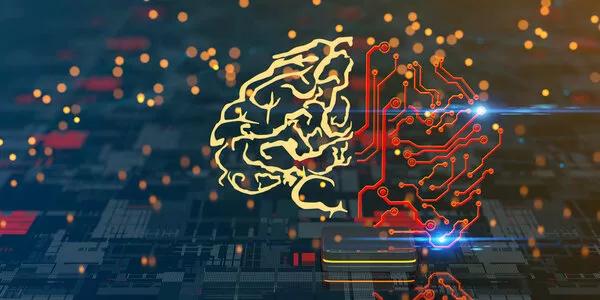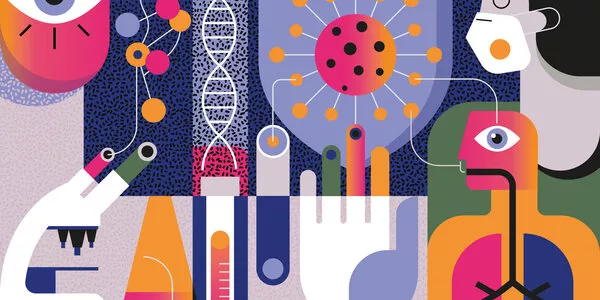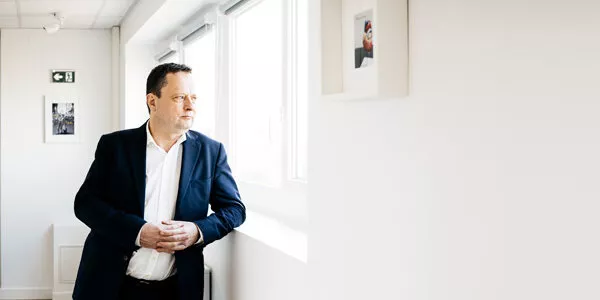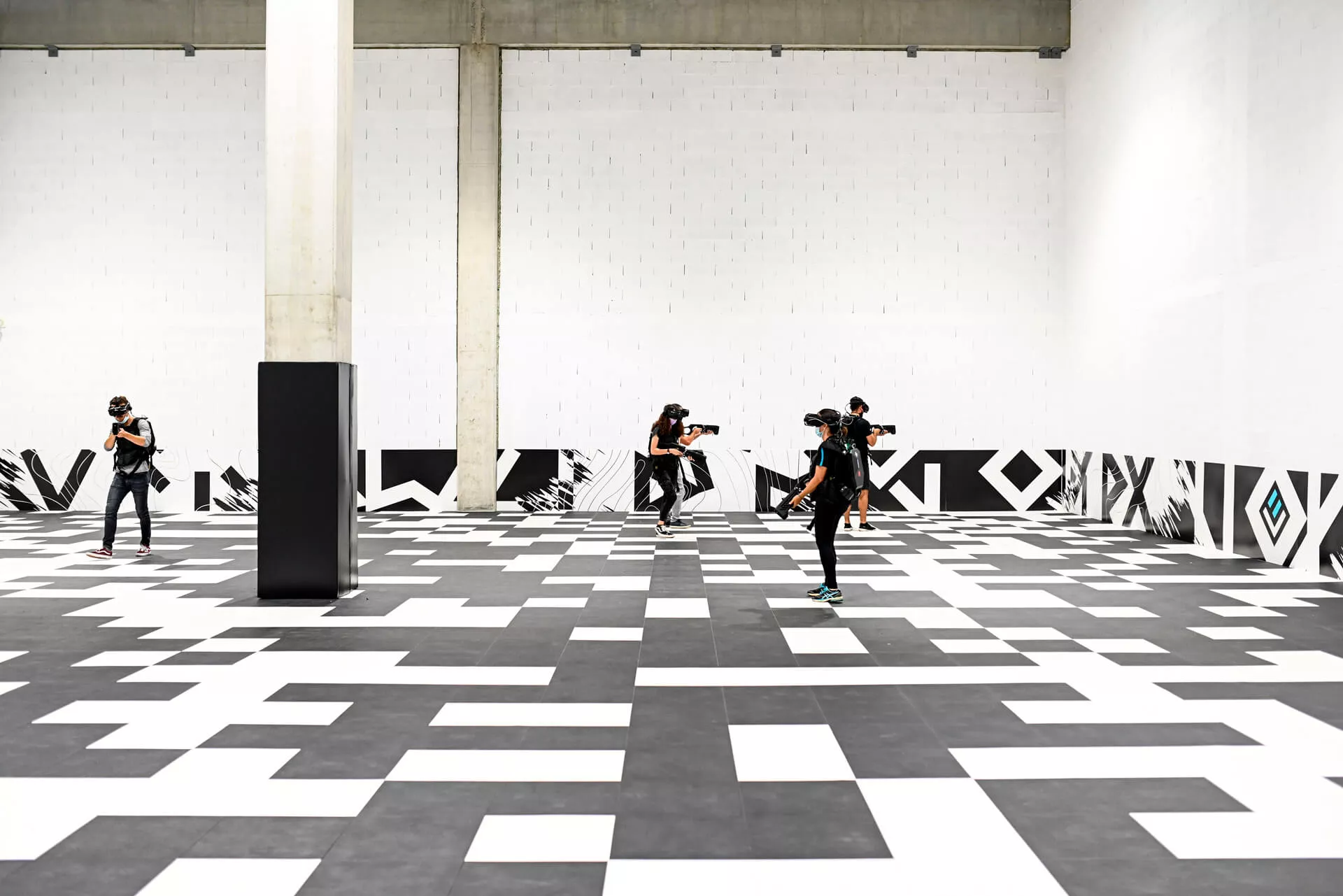
Portrait of the metaverse in the real world
Activities at the OL Vallée park at Décine (Rhône, France). Vortex Expérience VR, Zombies, an immersion game in virtual reality.
Contributors

Sébastien Massart
Director of strategy at Dassault Systèmes

Indira Thouvenin
Teacher-researcher at the UMR CNRS Heudiasyc laboratory,
Compiègne University of Technology
What exactly are we talking about when we talk about the metaverse?
Indira Thouvenin : The metaverse most commonly includes various concepts of virtual worlds that allow several people, connected synchronously or asynchronously, to sometimes have collaborative experiences, visit spaces or explore complex, virtualised objects. These environments are populated with avatars, which represent people (users) who can interact, and sometimes agents, which are artificial entities (programmes) capable of exhibiting certain behaviours. Virtual environments have been in development for about sixty years but they have taken on a new importance because today two worlds are beginning to merge: that of industry 4.0 which uses digital twins1 and that of massive multi-player online games. The first brings unrivalled precision through 3D modelling, the second extremely rich visualisation through high-quality imaging, graphic rendering and interaction. Added to this are the significant advances in interfaces —virtual reality headsets, sensors and motion controllers — which offer possibilities for high-level 3D immersion and interaction, added to the power of computer and social network infrastructures.
Sébastien Massart : Virtual worlds are not new – Dassault Systèmes created the first digital twin of an aeroplane in 1989 with the Boeing 777. It has become possible to visualise the world through the power of representation and simulation. What some actors call “metaverse” is only one facet, because this virtualisation should be used to improve the real world, not just to escape from it. These are the values and ambition that the company has placed at the heart of its mission since 2012 with the 3DEXPERIENCE platform: we create virtual worlds to help our customers imagine sustainable, real-world innovations.

Virtual worlds reshuffle the cards and provide new opportunities.
What are the reasons for the current rise of the metaverse?
I.T. : I think we can identify two important factors: the evolution of attitudes and the technological progress made in virtual reality over the past ten years. The Covid-19 health crisis has accelerated the acceptance of these technologies and the wider use of virtual in society, through the popularisation of remote work tools. And the technologies that underpin virtual worlds have made a lot of progress, both in terms of equipment and interfaces and in IT infrastructure (networks, computing capacities, etc.). Another key element is the ability to provide content. The virtualisation of processes and products, and that of services, including financial services, has become increasingly possible. Even if we are just at the beginning, we see more and more companies and brands, from very diverse backgrounds (luxury, consumer, leisure, etc.), seizing the opportunity offered by virtual reality, and deeming it a new “El Dorado” for growth.
Can we estimate the economic value of the metaverse today?
S.M. : Many actors are interested in the subject because they have the intuition that the economic value of virtual worlds is considerable. But today we simply do not know how to measure it. That’s the whole paradox! The Wikipedia model is very interesting in explaining this discrepancy: the value generated in society, which is linked to the dissemination and sharing of knowledge, is probably greater by a factor of ten thousand2 than the measured “accounting” value (100 million dollars, being the budget of the Wikipedia Foundation)3. The “platform value” of virtual worlds, which replicate information on a much more powerful scale, has an enormous leverage effect, but economists are not yet able to measure it. In a 2019 study, MIT4 researcher Erik Brynkjolfsson, for example, showed that 50% of respondents refused to give up using Google for a month if the financial compensation was less than $1,500. This gives a small idea of the value of the digital realm. At Dassault Systèmes, we fully realised the economic value of this “platform effect” as soon as we started virtualising major industrial programmes. The virtual aeroplane, that is to say the digital twin of the physical aeroplane, is more valuable than the physical one, because it contains all the instructions necessary to manufacture, operate and evolve the real aeroplane and then repeat this ad infinitum. When we know that 80% of decisions on a product are able to be made even before the first prototype, we understand the true value of the digital twin!
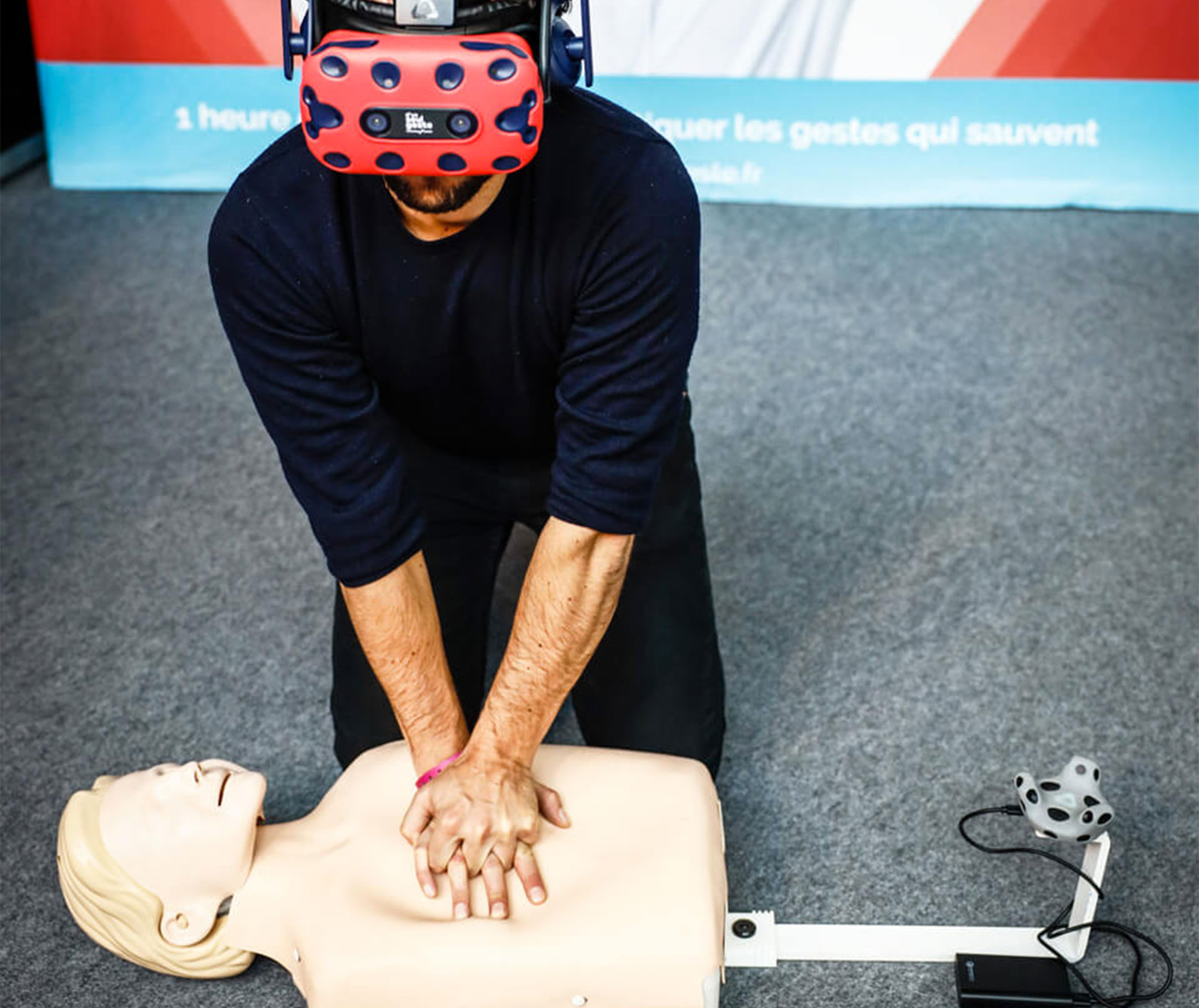
Virtuality Salon at Centquatre, Paris (2019), the international trade show for virtual and augmented reality.
In which sectors are virtual worlds set to develop?
I.T. : The list would certainly be a very long one. All sectors are concerned and they will create virtual worlds for many uses, in business and industry, in commerce, construction and cities, in education and training, in health, leisure… For this, we will have to create resources linked to the content of these worlds, that is to say, 3D objects. The industry of the future will also be an industry of virtual objects! Domains already using 3D modelling are able to deliver features in metaverses more quickly.
Can you give examples of applications in some sectors?
I.T. : Let’s take education, which will be a privileged area for the development of the metaverse. It will become possible to multiply virtual classes for large communities of students, with the possibility of sharing experiences, and of offering virtual laboratories.
Another promising area is health. Virtual reality will make telemedicine more immersive. It can also, for example, be used to assist with surgery or to manage phobias or stress through simulations of real-life situations. The construction sector is another field of virtual deployment possibilities with, for example, the energy modelling of buildings. As we can see, several virtual worlds will coexist and one of the major questions that will arise will be that of the interoperability of these different worlds, which often operate on platforms with “proprietary” languages. The challenge is to establish regulations on an international scale and to define norms and standards to guarantee interoperability and not to let the major players decide the rules alone.
S.M. : Virtual worlds will be deployed everywhere! For Dassault Systèmes, the addressable market space in this area is estimated at 100 billion dollars. The world is already embarking on an accelerated virtualisation path. Social networks, which bring together more than three billion people on the planet, constitute a unique point of observation on the world. This pushes companies to change the way they innovate, because we are increasingly part of an experience economy. We have already demonstrated this in the manufacturing industry. Now we are going beyond this by using the formidable capacity of virtual worlds to manage complexity in the fields of health, regions and the city. In 2020, Dassault Systèmes set itself the strategic ambition of creating a virtual twin of the human body in order to offer smarter and more personalised therapeutic solutions. Virtual platforms, by combining modelling, simulation, data sharing, artificial intelligence and collaboration, are changing the paradigm of medical innovation. Virtual clinical trials make it possible to develop new therapies much faster than before. The whole economy, as we have seen with the Covid-19 crisis, is linked to health, to human experience, to knowledge of living things and their environments. Regions and cities are placed at the heart of these issues and virtual worlds have a major role to play, for example in terms of mobility. Offering sustainable mobility services adapted to urban environments means operating very complex systems to provision resources according to customer demand and to respond promptly to unpredictable external conditions. The use of a virtual twin is an essential tool in meeting these challenges effectively.
What is the impact of virtual worlds on the environment?
S.M. : The use of virtual twins has a positive impact on the environmental footprint of our customers across many industries. They help customers to harmonise products, nature and life in general. The digital twin of a product makes it possible to model and simulate all the operations of its life cycle and to optimise them, right from initial design to final recycling. A study by Accenture published in 2021 and covering several use cases in the sectors of construction, consumer goods, transport, life sciences, electrical and electronics estimates the potential for reducing CO2 emissions through the implementation of digital twins at 7.5 gigatonnes by 2030.
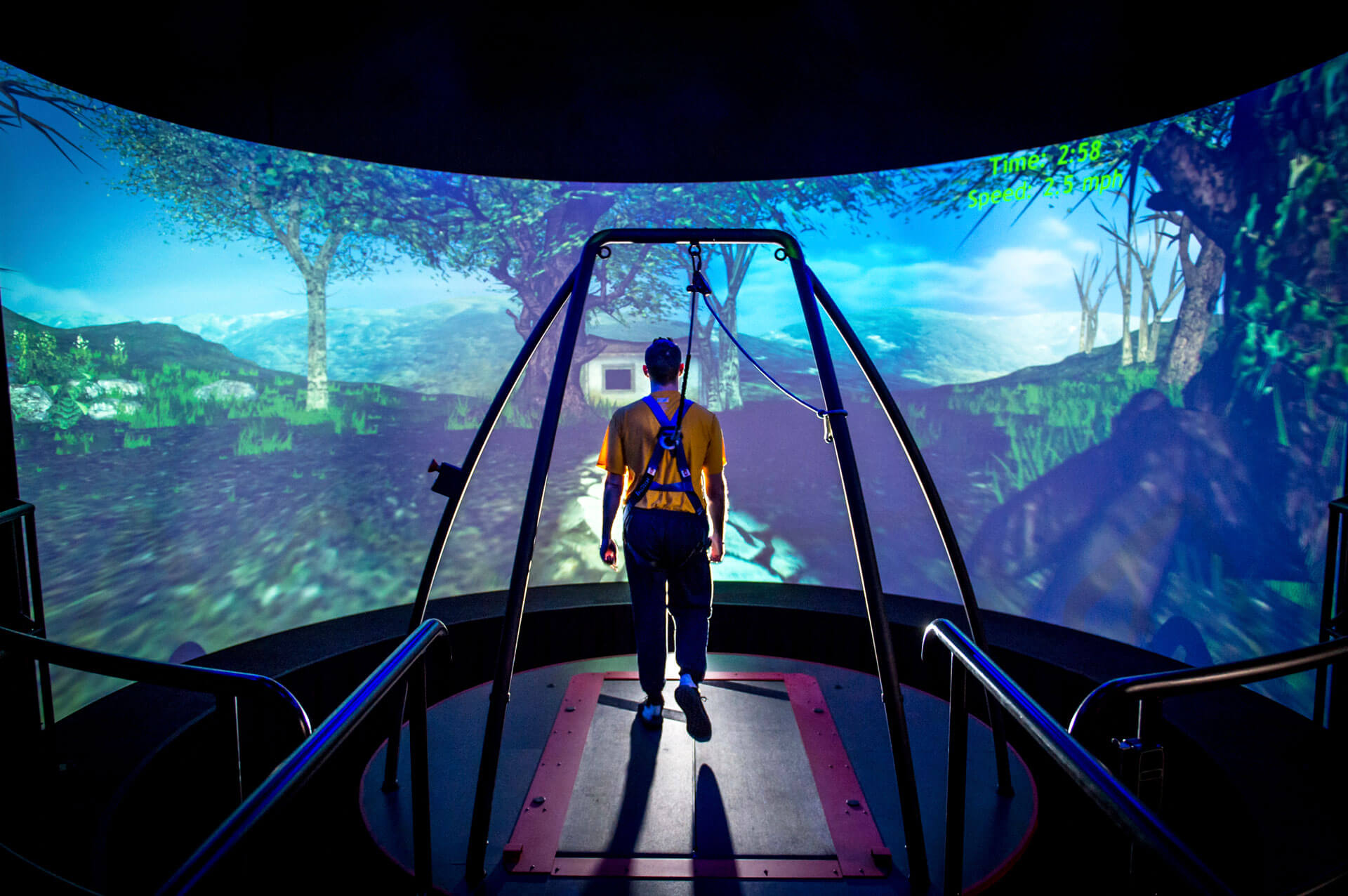
CAREN virtual reality therapy. CARENs are biomechanical systems which use a multi-sensory system in which users are completely immersed in a virtual environment.
Are we on the eve of an industrial revolution with these virtual worlds?
S.M. : I prefer to use the term industrial renaissance because it is not just about change but about finding a new way to live in the world. Representation has always been at the heart of human action and economics. We draw the house before building it! With virtual worlds, we have access to representations in which we can project ourselves so convincingly that they can even engage with the body itself. They are a powerful support for imagination and creativity. These worlds reposition individuals and give them the ability to connect to groups, helping them work collaboratively across scales that have no common measure with past experience.
I.T. : It seems important to me to emphasise the changes that these virtual worlds will bring about in human organisations and in attitudes. This very collaborative world relies less on the notions of hierarchy and power. The way of structuring a project, of organising, of communicating will be very different. New professions will appear, and for sure, certain individuals will be able to train themselves, express very strong digital skills and become famous outside the usual patterns of social success. These virtual worlds reshuffle the cards and bring new opportunities, including in the field of social relations. The simple fact of projecting oneself into other representations, of incarnating oneself in different virtual bodies (the Proteus effect) helps to recast “otherness” in a far more positive light.
Aren’t there also risks and potential abuses?
I.T. : These virtual worlds will probably require external regulation and public authorities will need to equip themselves with the appropriate tools and work at defining a suitable ethical framework in order to balance rights and responsibilities. Clearly there is the risk of inappropriate behaviour and attacks on the integrity of a person through their avatar. The educational aspect should also not be neglected. Educating people on how to use these new worlds is essential. It will be necessary to define standards of behaviour and social codes. We must also not neglect the possible health risks, such as visual fatigue or problems related to wearing a helmet5, but there is still very little research on these topics. I would also highlight the risk of a new “digital divide” between those who will have access to these virtual worlds and those who will not.
S.M. : It is important for politicians to have a better understanding of what virtual worlds are because they have effects in the real world. Regulation will need to address these areas. Two issues are essential: the question of the heritage of the data generated by the platforms and equally the heritage of digital identity. Territories need to exert ownership of the first of these in order to retain the benefits of its exploitation. It must be subject to geographical sovereignty. Digital identity is crucial for creating a world of trust, because otherwise how can I be sure that the avatar I come into contact with is genuine? Just like a passport in the real world, it is necessary to create a digital identity guaranteed by public authorities which must play, in this area, the role of a trusted third party.
1. The digital twin is a model of a real environment that allows for the sharing of information, its modification and enrichment, creating a very precise model of reality. This model can be imported into the metaverse and used in collaborations. In this case, we need to add interactions, represent users, and give them tools so that they can interact with each other. It then becomes a collaborative virtual environment.
2. https://hbr.org/2019/11/how-should-we-measure-the-digital-economy
3. https://en.wikipedia.org/wiki/Wikimedia_Foundation#Financial_summary
4. Massachusetts Institute of Technology
5. A study published in June 2021 by ANSES estimates that VR helmets can cause dizziness, nausea and sweating in 30 to 50% of users.
Look further
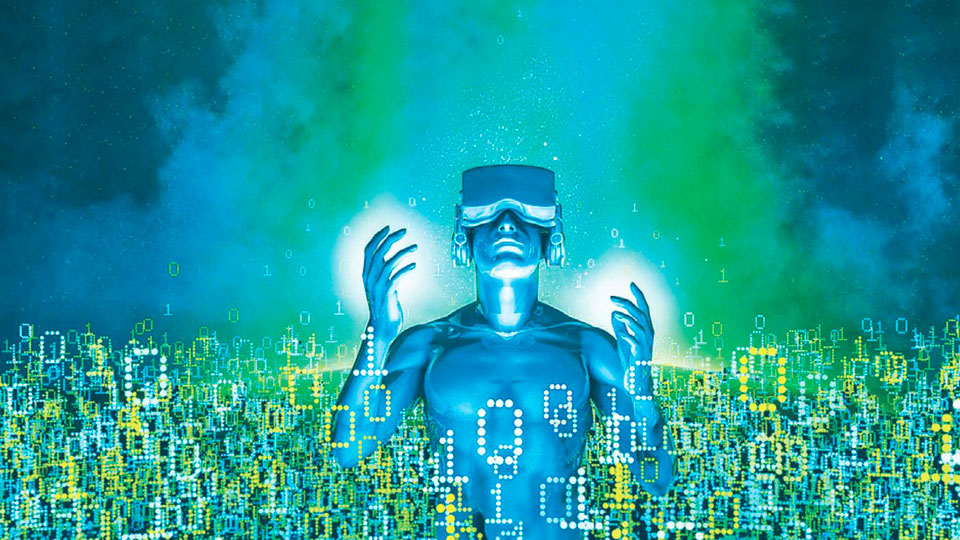
The Metaverse and how it will revolutionize everything
Matthew Ball, Liveright, W. W. Norton, 2022.
The digital twin, from artificial intelligence to agile industry
Nathalie Julien, Eric Martin, Dunod, 2020.
Exposure to virtual and/or augmented reality technologies
Opinion of ANSES (National Health Security Agency), Collective expert report, June 2021.
Mirror, mirror…: the territory’s digital twin,
Banque des Territoires, July 2021.

Snow crash
Neal Stephenson, 1992, Penguin.
Neuromancer
William Gibson, 1984, Penguin.

Ready Player One
Steven Spielberg
The Matrix films
Lilly and Lana Wachowski
Today is already tomorrow
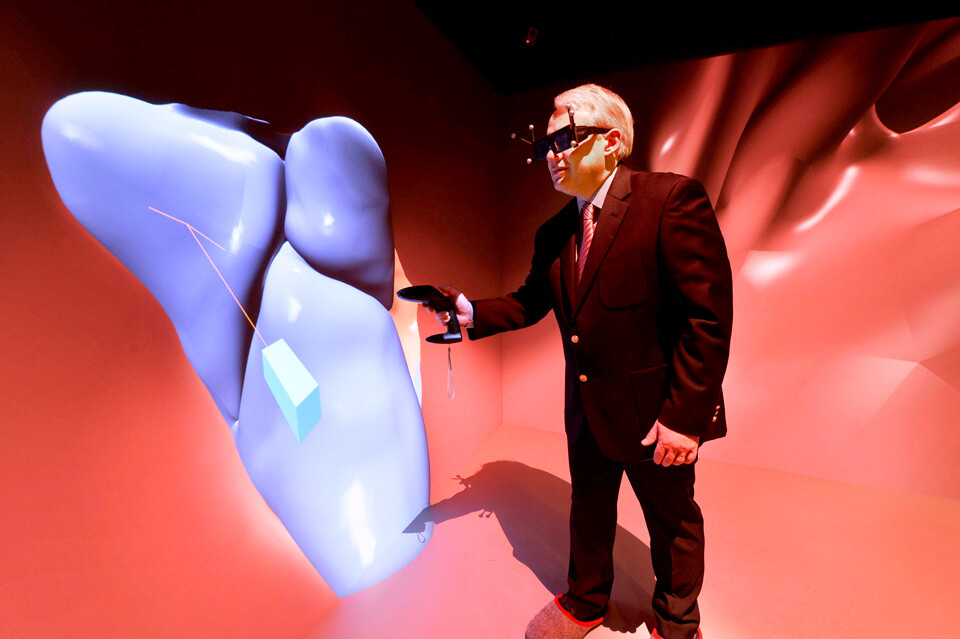
The “Living Heart” project aims to simulate the human heart in 3D and promises to revolutionise cardiology. It has already shown great promise in planning cardiac operations, evaluating the cardiotoxicity of drugs or even in the testing of new cardiovascular devices. Boston Children’s Hospital is already using it to plan interventions for birth defects.
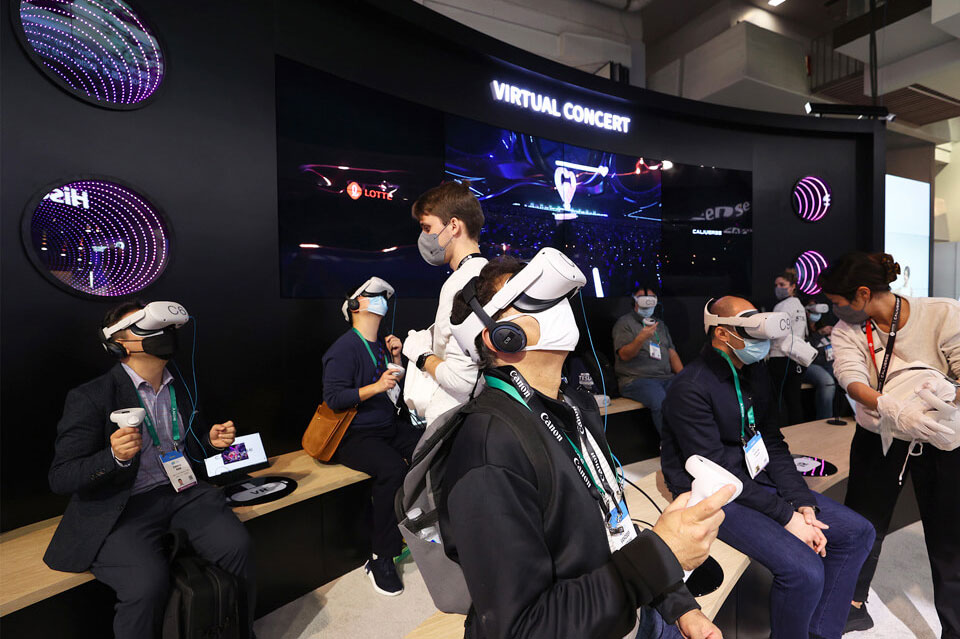
This platform will be set up by the municipality of the South Korean capital by the end of 2022, through the equivalent of a 2.8 million euro investment in the project. Using a virtual reality headset, Seoul residents will be able to visit the mayor, Oh Se-Hoon, in his virtual office, carry out their administrative procedures, or even visit the main tourist sites of the city and attend major events without moving! Ultimately, all municipal services will be accessible via this new space which is part of the Seoul Vision 2030 initiative.

Fancy an interactive musical experience with artists in the metaverse? You won’t have long to wait! The French start-up Stage11, combines immersive video games, mixed reality and digital collectibles, building a new creative canvas for artists. Artists will be able to invite their fans and their public to live, play and co-create within their own musical worlds. Artists Martin Garrix, David Guetta, Snoop Dogg, Ne-Yo, Akonou and Salif Gueye have already signed up.

Interview by Catherine Véglio
Editorial adviser, journalist, novelist, Catherine Véglio explores the fields of economy,
innovation, science, technologyand their relationships to society.

